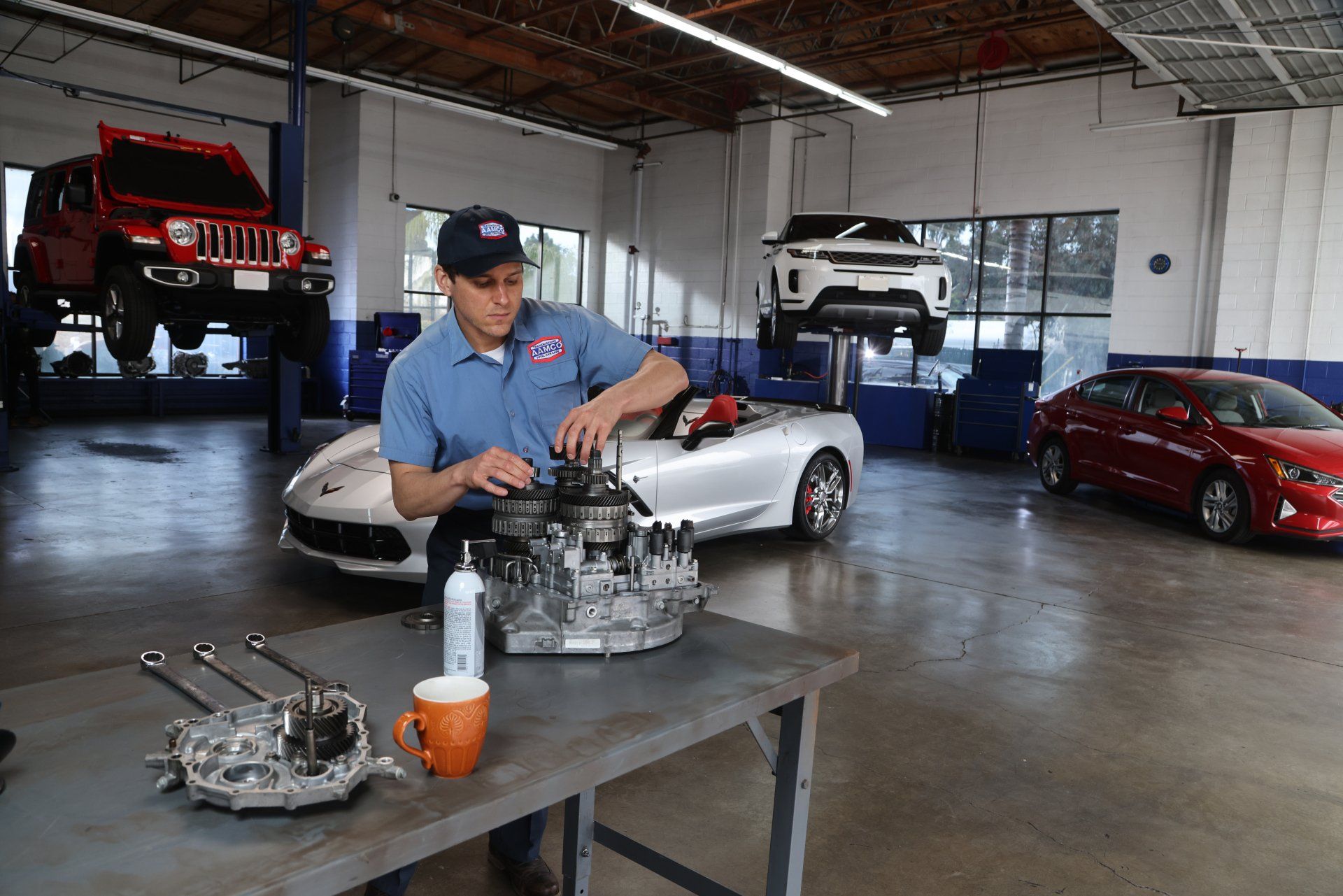You’ve heard of brake pads and rotors – but have you heard of brake fluid testers? If you haven’t, you’re not alone. However, they can be key to keeping your brake system healthy. Your brake system relies on brake fluid to operate well and if that gets thrown off in any way, you’re likely to start noticing it. Both air pockets and water in your brake line should be addressed by a mechanic like the experts at AAMCO Wichita.
Brake Fluid Testers 101 – What Do They Do?
Since you can’t just take a peek inside your brake lines, you need a way to test what’s going on with your brake fluid. While air pockets will show signs like a spongy brake pedal, water in your brake line may not show any noticeable signs until you have more serious brake problems. That’s where brake fluid testers come in. They’ll test the composition of your brake fluid so you or your mechanic can tell whether there’s water in your brake line.
Too Much Water in Your Brake Line Can Cause Boiling
Over time, your brake fluid accumulates moisture. While this is natural, it also lowers the boiling point of your brake fluid. That can cause brake fluid to boil in the calipers, especially if you brake for a prolonged period, generating more heat. If this happens, your brake pedal may go all the way to the floor, posing a safety risk for you and other drivers around you.
Acids and Sludge Can Build Up as Corrosion Inhibitors Wear Out
Your brake fluid has additives that help prevent corrosion. When those additives wear out, acids and sludge can start to build up. Once this happens, it can damage a number of parts in your brake system, from the calipers and brake lines to the ABS modulator and valves. Damage done to these parts can be an expensive brake repair that you’d rather avoid.
Why is it Important to Test Your Brake Fluid?
Long story short, your brake fluid wears out over time, potentially causing a buildup of water, acid, and sludge. By using brake fluid testers, you can catch a buildup of water, acids, or sludge in your brake lines before they cause expensive repairs. Just looking at your brake fluid won’t tell you much about its actual condition, so the only way to know whether your brake fluid is contaminated or not.
There are A Couple Different Types of Brake Fluid Testers Out There
These days, there are two main options when it comes to brake fluid testers. One type tests the electrical resistance of your brake fluid. This essentially measures the moisture content, which will tell you whether your brake fluid has become contaminated with water. However, this tester can sometimes become tricked by additives and other contaminants in the fluid.
A second type of brake fluid tester boils a small sample of brake fluid to find out the boiling temperature. Different types of fluid have different boiling temperatures, but if the boiling temperature is too low, it’s an indication you have too much additional moisture in your brake fluid.
Regular Brake Fluid Flushes Will Save Your Brakes
Along with getting new brake pads and rotors as necessary, brake fluid flushes are another key part of regular brake maintenance. During a brake fluid flush, all of the current brake fluid will be removed so that fresh brake fluid can be put in the system. This ensures that moisture and contaminants don’t build up to a dangerous level over time.
With or Without Brake Fluid Testers, Fresh Brake Fluid Will Keep You Safe
While brake fluid testers will help tell you the condition of your brake fluid, regular brake fluid flushes will help keep your brake system healthy regardless. Still, if you bring your car to a mechanic for regular maintenance, it doesn’t hurt to have them test your brake fluid as well. This way, if you’re in need of new brake fluid ahead of schedule, you’ll know.
In the Market for a New Brake Mechanic in Wichita? Try AAMCO!
Whenever you need a brake repair in Wichita, trust the expert mechanics at AAMCO. From regular maintenance to major repairs, our mechanics are equipped with the knowledge, skills, and tools to accurately diagnose and repair whatever your car needs.
AAMCO Wichita Blog



